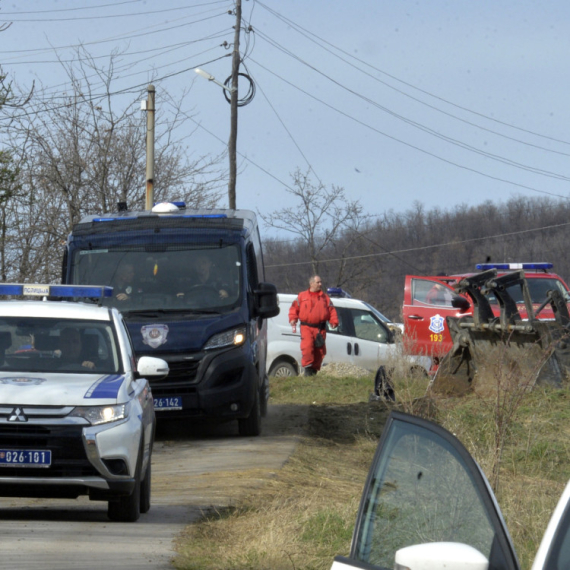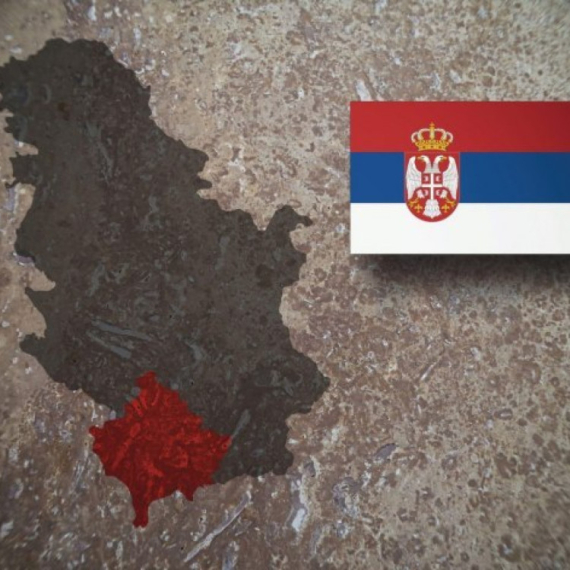Amnesty International: Kosovo judiciary “ineffective”
An Amnesty International report says that the judiciary system in Kosovo is hopelessly ineffective.
Tuesday, 29.01.2008.
11:11

An Amnesty International report says that the judiciary system in Kosovo is hopelessly ineffective. The organization insists that crimes committed in Kosovo in the 1990s cannot remain unpunished. Amnesty International: Kosovo judiciary “ineffective” Amnesty has called on the Kosovo government to publish what measures its courts have undertaken to punish war crimes and ethnically motivated crimes. “Hundreds of cases of war crimes, crimes against humanity (including rapes and enforced disappearances), as well as other inter-ethnic crimes remain unsolved seven years after the UN began its efforts to rebuild the Kosovo judicial system,” said Sian Jones, Amnesty International's researcher on Kosovo. The report states that the situation is still the same, seven years after the UN began reconstructing the Kosovo judicial system. “Hundreds of cases have been closed, for want of evidence that was neither promptly nor effectively gathered. Relatives of missing people report that they have been interviewed too many times by international police and prosecutors new to their case, yet no progress is ever made," Jones said. Amnesty International delegates visited Kosovo in between November and December 2007 and talked with members of the EU Planning Team, officials from the UN Interim Administration Mission in Kosovo - including those responsible for the police and judiciary - and with local and international non-governmental organizations monitoring the international prosecutors and judiciary. The delegates ascertained that trials continue to be delayed due to the lack of international judges and prosecutors, a massive backlog of prosecutions, and the failure to protect witnesses effectively and to provide the necessary support to victims of rape and other crimes of sexual violence which continues to prevent prosecutions coming before the courts. Amnesty International's report, "Kosovo (Serbia):The challenge to fix a failed UN justice mission," examines and compares the performance of the program with international law and standards concerning the right to fair trial and the rights of victims to justice and full reparations. It draws lessons to be learned when developing and implementing future initiatives, including recommending the incorporation of an international component into collapsed national judicial systems. "Regrettably, the performance over more than seven years of the International Judges and Prosecutors Programme has failed to meet expectations. Local prosecutors and judges are still not prepared for cases involving crimes under international law. Legal reforms essential for such cases still have not been enacted into law. No date has been set for completing the rebuilding of the justice system so that it can operate without a continuing international component," said Jones. Amnesty International said that “the model of internationalizing national courts by importing, on a temporary basis, experienced international staff to work alongside national staff in all parts of the collapsed or damaged national justice system is still one that could prove effective in the long-term to investigate and prosecute large numbers of crimes under international law, provide reparations to victims and re-establish the rule of law through a reconstituted judicial system.” “Sadly however, the structure and operation of the International Judges and Prosecutors Program have been so flawed from its inception that the example in Kosovo cannot serve as a model for internationalizing national judicial systems without major changes,” the report states.
Amnesty International: Kosovo judiciary “ineffective”
Amnesty has called on the Kosovo government to publish what measures its courts have undertaken to punish war crimes and ethnically motivated crimes.“Hundreds of cases of war crimes, crimes against humanity (including rapes and enforced disappearances), as well as other inter-ethnic crimes remain unsolved seven years after the UN began its efforts to rebuild the Kosovo judicial system,” said Sian Jones, Amnesty International's researcher on Kosovo.
The report states that the situation is still the same, seven years after the UN began reconstructing the Kosovo judicial system.
“Hundreds of cases have been closed, for want of evidence that was neither promptly nor effectively gathered. Relatives of missing people report that they have been interviewed too many times by international police and prosecutors new to their case, yet no progress is ever made," Jones said.
Amnesty International delegates visited Kosovo in between November and December 2007 and talked with members of the EU Planning Team, officials from the UN Interim Administration Mission in Kosovo - including those responsible for the police and judiciary - and with local and international non-governmental organizations monitoring the international prosecutors and judiciary.
The delegates ascertained that trials continue to be delayed due to the lack of international judges and prosecutors, a massive backlog of prosecutions, and the failure to protect witnesses effectively and to provide the necessary support to victims of rape and other crimes of sexual violence which continues to prevent prosecutions coming before the courts.
Amnesty International's report, "Kosovo (Serbia):The challenge to fix a failed UN justice mission," examines and compares the performance of the program with international law and standards concerning the right to fair trial and the rights of victims to justice and full reparations. It draws lessons to be learned when developing and implementing future initiatives, including recommending the incorporation of an international component into collapsed national judicial systems.
"Regrettably, the performance over more than seven years of the International Judges and Prosecutors Programme has failed to meet expectations. Local prosecutors and judges are still not prepared for cases involving crimes under international law. Legal reforms essential for such cases still have not been enacted into law. No date has been set for completing the rebuilding of the justice system so that it can operate without a continuing international component," said Jones.
Amnesty International said that “the model of internationalizing national courts by importing, on a temporary basis, experienced international staff to work alongside national staff in all parts of the collapsed or damaged national justice system is still one that could prove effective in the long-term to investigate and prosecute large numbers of crimes under international law, provide reparations to victims and re-establish the rule of law through a reconstituted judicial system.”
“Sadly however, the structure and operation of the International Judges and Prosecutors Program have been so flawed from its inception that the example in Kosovo cannot serve as a model for internationalizing national judicial systems without major changes,” the report states.
























































Komentari 15
Pogledaj komentare